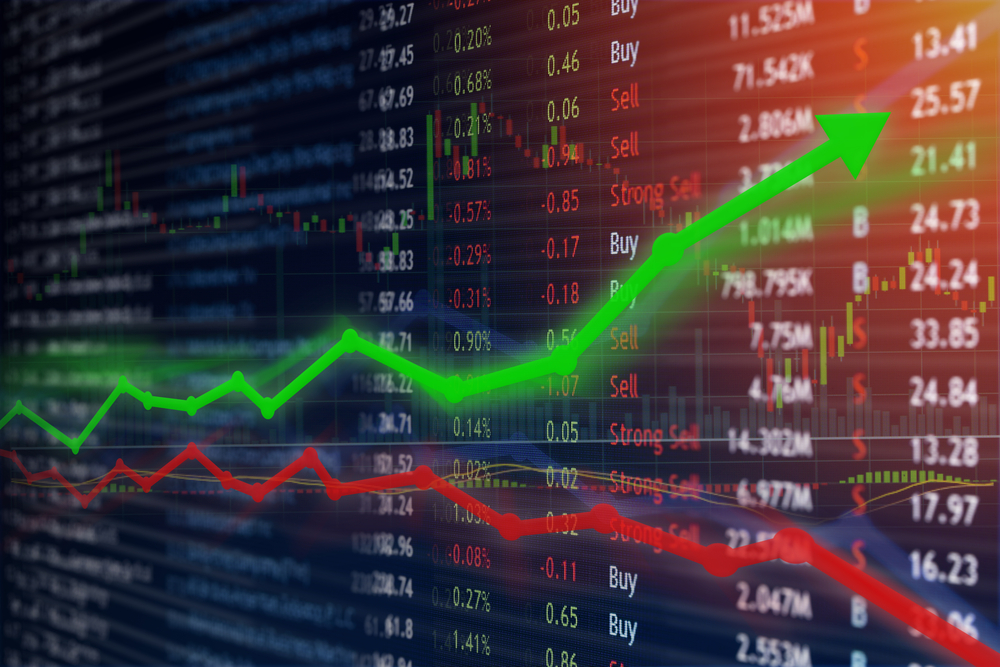Business
Stocks Rally as Oil, Jobless Claims Rocket Higher

The stock market rally continued yesterday with the Dow Jones Industrial Average jumping 2.24%, the S&P 500 gaining 2.28% and the Nasdaq up 1.72%.
Investors felt optimistic after President Trump tweeted that he had spoken with Saudi Arabian Crown Prince Mohammed bin Salman. Many were hoping that both Saudi Arabia and Russia were willing to end the price war and mutually agree to cut production by at least 10 million barrels per day.
“Just spoke to my friend MBS (Crown Prince) of Saudi Arabia, who spoke with President Putin of Russia, & I expect & hope that they will be cutting back approximately 10 Million Barrels, and maybe substantially more which, if it happens, will be GREAT for the oil & gas industry!” Trump tweeted.
However, some experts are doubting the reality of cutting production by such a significant amount.
Edward Marshall, a commodities trader at Global Risk, told The Wall Street Journal, “It’s physically impossible for Saudi Arabia and Russia to get 10 million barrels a day off the market—they’d burst their onshore storage and fill every ship in sight.”
News also broke that Saudi Arabia called for an emergency meeting of OPEC and other oil-producing countries. The country called for a meeting to talk about how they can stabilize the oil market. Prices have been in freefall since the last meeting ended without a production agreement beyond April 1.
This was enough to send oil prices rocketing higher. West Texas Intermediate crude gained as much as 34% intraday before settling at $25.32 per barrel, a 24.7% jump. This is its largest single-day percentage gain in history.
Even with prices moving higher, it may not be enough to prevent bankruptcies in the oil and gas sector. This wave of bankruptcies was kicked off by shale driller Whiting Petroleum Corp. on Wednesday.
Jobless Claims Set Record
The market’s rally yesterday came in spite of some very bad news early in the day. Initial jobless claims for the week ending March 28 came in at 6.6 million. This figure is nearly double the previous week’s then-record of 3.2 million.
To put this number in a historical perspective, prior to the last two weeks, the previous record number of claims in a single week sat at 665,000 in March 2009 during the Great Recession.
To put it simply, this week’s initial jobless claims number was equal to the total claims filed during the entire Great Recession.
Chris Rupkey, chief financial economist for MUFG Banks, wrote in an email, “We knew that massive job losses were coming because of reports that many workers were unable to file a claim for benefits even after waiting on line for hours. Everywhere you look Washington and state governments were not prepared for the rapid spread of the virus and the devastating damage that would be done to the economy if businesses were shut down and workers sent home.”
He added “In a normal recession, job layoffs build over the many months of recession until they peak. In this pandemic-based recession, the job losses are immediate where the economy's weakest hour is right now.”
Why was the market able to rally despite historically bad jobless claims?
JJ Kinahan, chief market strategist at TD Ameritrade, says it's possible that the market knows it’s going to get worse. He also mentioned that this number won’t seem as bad in the coming weeks.
“Overall this is a little bit of a victory in and of the fact that it was such a bad number and the market did kind of shake it off. It is also the market preparing for a lot more bad numbers.”















